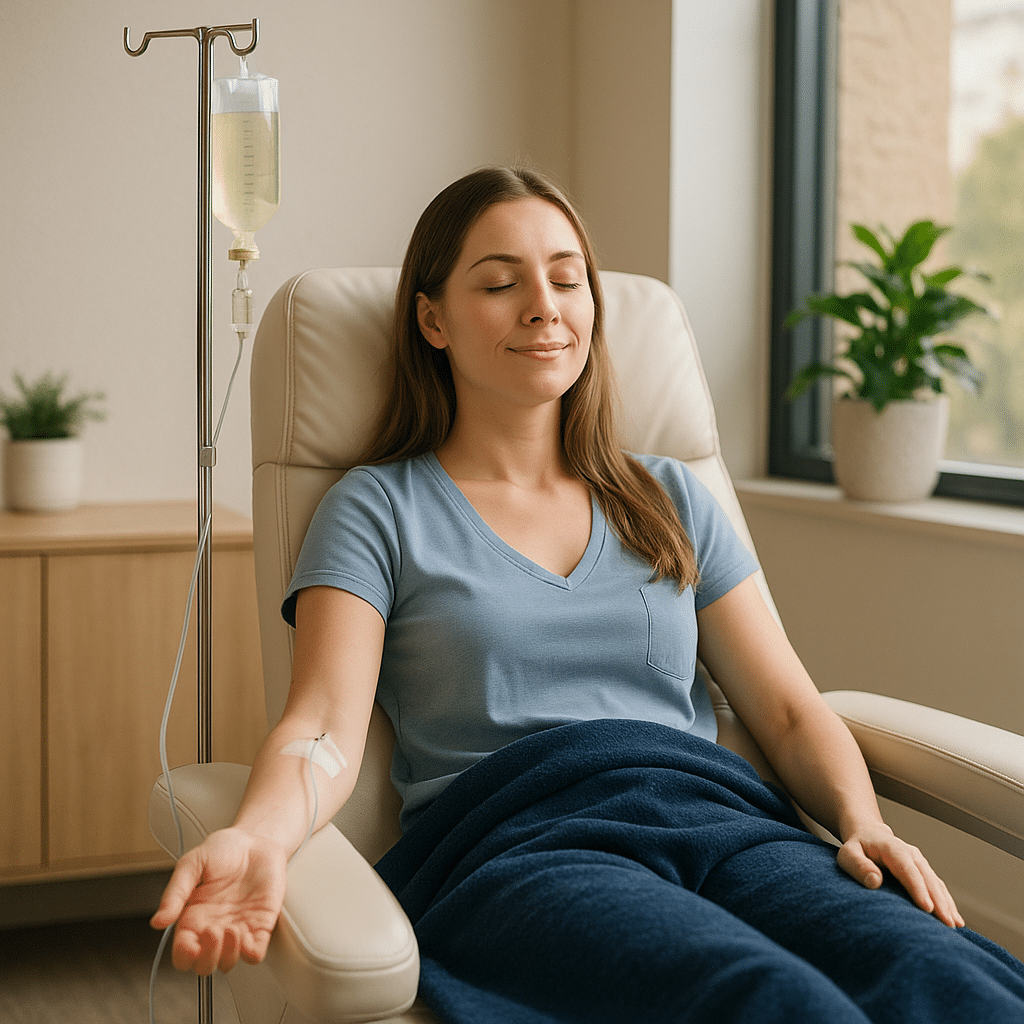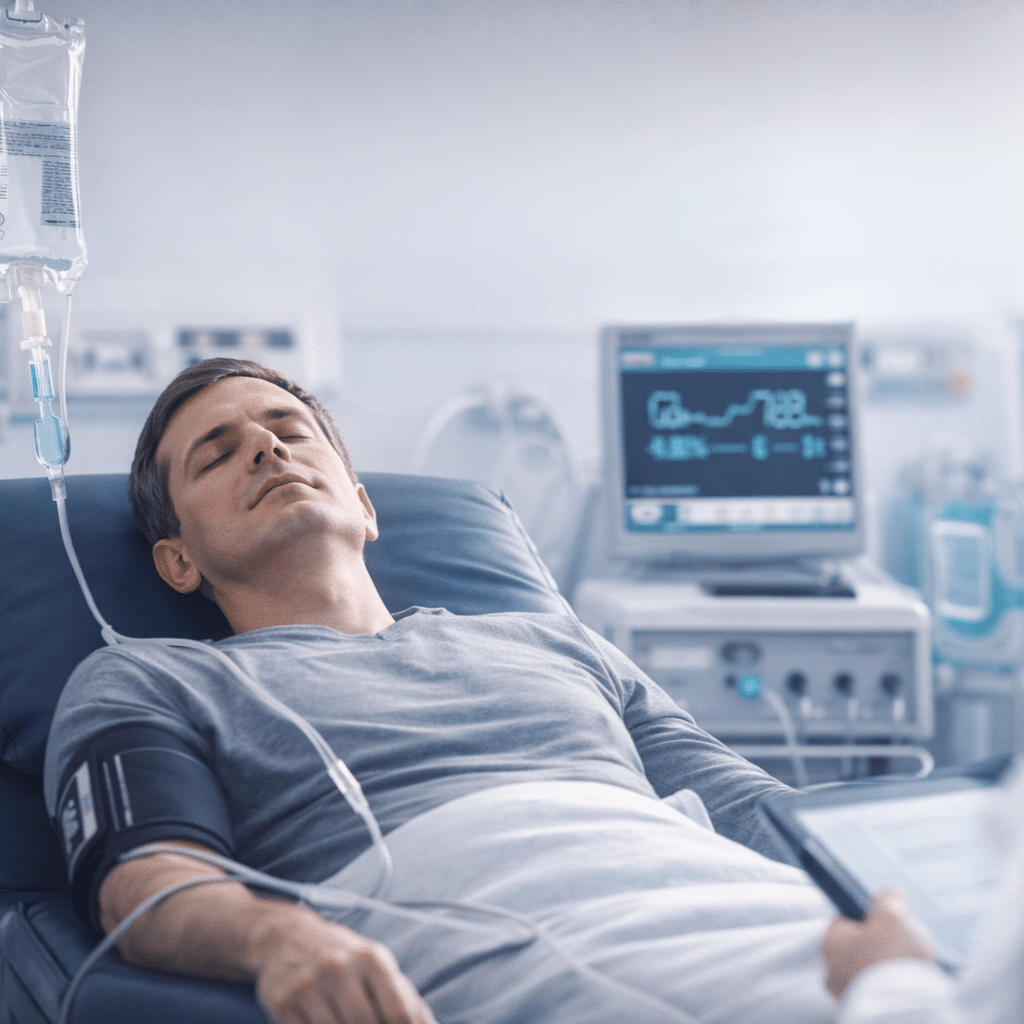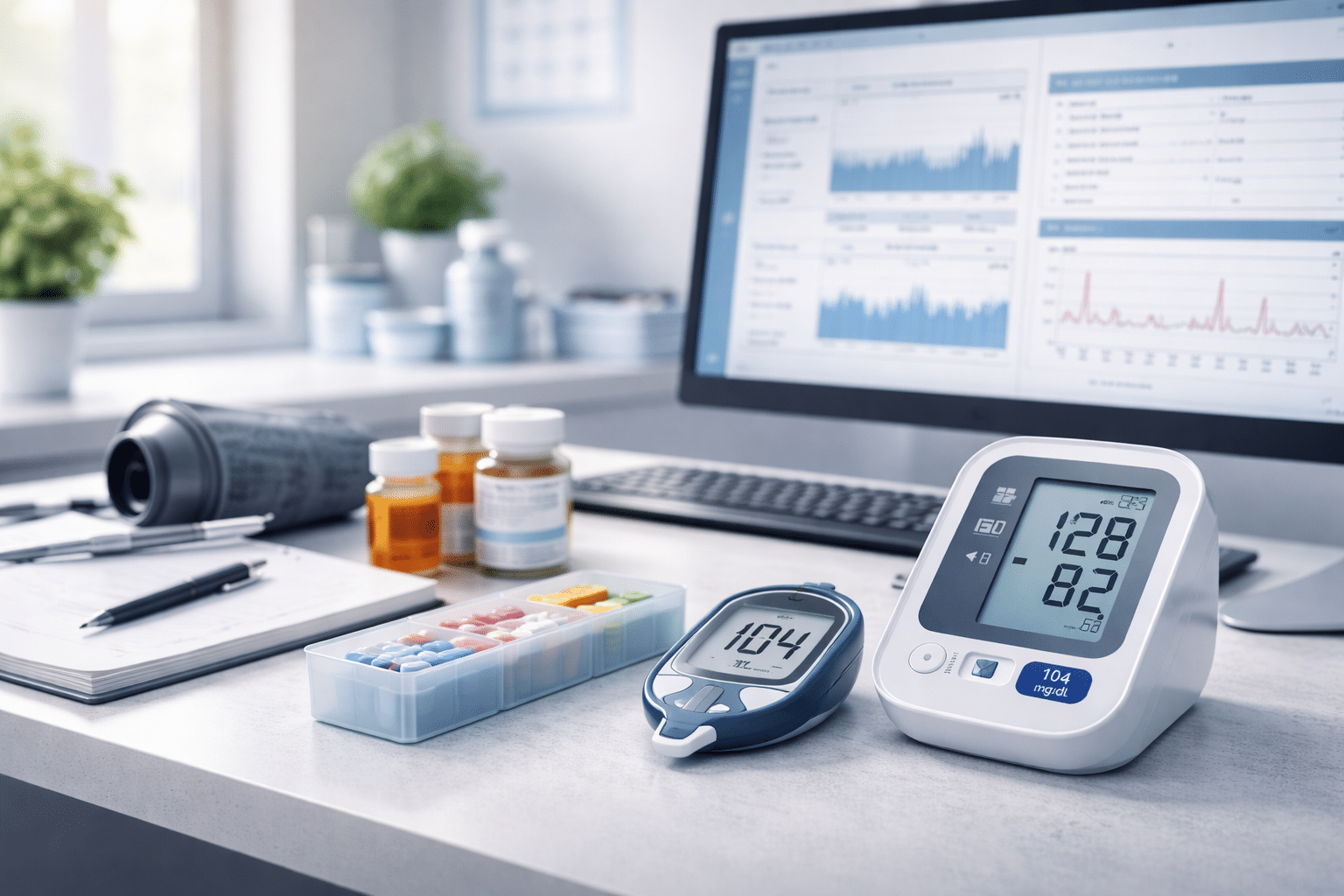You have probably seen photos online of people hooked up to IV drips in spa-like lounges, smiling with headphones on. The idea looks simple: plug in, sit back, and suddenly feel better. But what is really happening when someone chooses IV therapy? And does it live up to the hype?
IV therapy is not a miracle cure, but it is also not just a gimmick. When used carefully, it can help with specific problems like dehydration, low iron, or even migraines. For busy people in Sacramento, where heat, commutes, and work stress often pile up, IV therapy can serve a role. The key is knowing where it works and where it does not.
What IV Therapy Is (and What It Isn’t)
IV therapy means delivering fluids, electrolytes, or nutrients straight into the bloodstream through a vein. That direct route allows the body to absorb things faster than it would through digestion.
However, just because nutrients get into the bloodstream quickly does not mean everyone needs them this way. IV therapy is most effective when there is a medical reason, such as dehydration that cannot be fixed by drinking, or a deficiency confirmed through blood work.
It is not an instant energy hack for healthy adults. If you eat well and your labs are normal, there is no strong proof that a vitamin drip will give lasting energy or protect against illness. That does not mean IV therapy is useless. It means it must be used wisely.
When IV Rehydration Works, and When a Glass of Water Is Enough
We all know what mild dehydration feels like: dry mouth, sluggish thinking, sometimes a headache. For most of those moments, the answer is simple: drink water and add an electrolyte packet if you are sweating heavily. Research has shown that oral hydration often works just as well as IV fluids in mild cases.
So, when would an IV make sense?
Think about scenarios where oral intake just is not possible:
- Someone recovering from a stomach bug who cannot keep fluids down.
- A traveler coming off a long flight who is both jet-lagged and drained, unable to rehydrate quickly.
- A construction worker in Sacramento’s 100-degree heat who feels too depleted to drink enough to catch up.
In those circumstances, IV fluids can be a quick fix to rehydrate the system. However, even in those instances, IV therapy should never be taken lightly. There is always a risk of vein irritation, infection, or overhydration. That is why a medical screening is important before receiving a drip.
Fatigue and Nutrient Deficiencies: Where IV Therapy Shines
Feeling tired is one of the main reasons people book IV appointments. But fatigue is tricky. Sometimes it is just a matter of stress or lack of sleep. Other times, there is an actual deficiency hiding underneath.
Iron Deficiency
Studies from 2024 and 2025 show that IV iron helps reduce fatigue and improve physical capacity in adults with low ferritin. For people who do not tolerate oral iron well, this treatment can be a turning point.
Vitamin B12 Deficiency
B12 injections, whether intramuscular or intravenous, are effective when blood levels are low. However, if your B12 levels are fine, adding more through an IV drip will not make you more energetic.
NAD+ Drips
NAD+ drips have been gaining popularity. Some call them anti-aging therapies. A 2024 pilot study found IV nicotinamide riboside (a vitamin B3 form) was safe in the short term. Still, evidence of actual long-term benefit is not there yet.
Migraine Relief and Recovery From Stress
Migraines are complex, and anyone who has had one knows how desperate you can feel during an attack. IV therapy, especially magnesium infusions, has shown promise. Some trials show pain relief within 15 to 45 minutes after the drip begins. For certain patients, it is a useful option when other treatments fall short.
Outside of migraines, IV therapy can play a role in recovery after heavy stress on the body. Sacramento summers, for instance, can leave people drained. An athlete or worker who pushes through extreme heat may find that oral rehydration just does not cut it. In those rare cases, an IV can help bring fluids and electrolytes back into balance faster. Still, prevention, that is, hydrating consistently throughout the day, is always the smarter first step.
The Hangover Myth
Clinics often market drips that supposedly erase hangovers in an hour. It sounds appealing, but science says otherwise.
IV fluids can ease some symptoms by correcting dehydration. So, yes, you might feel less dizzy or foggy after a drip. But alcohol’s other effects, like inflammation, poor sleep, and toxin build-up, are untouched by IV therapy. The only real cure for a hangover is time, rest, and rehydration. Therefore, while IVs might provide partial relief, they are not a magic reset button.
How IV Therapy Fits Into Preventive Care
Staying healthy is never about one shortcut. It comes from the basics you repeat without thinking: sleep that feels restful, decent meals most days, moving your body, and checking in with a doctor when it’s time. Those habits matter more than any drip bag or supplement.
So, where does IV therapy belong? Not as something you schedule every week just because it feels trendy. It works best in specific cases. Someone recovering from illness who cannot keep fluids down might need IV hydration. A patient with recurring migraines may respond to IV magnesium. In those settings, it is less of a wellness luxury and more of a precision tool.
Still, safety always comes first. People should be screened for issues like kidney disease, heart conditions, or pregnancy before treatment. Clinics also need to follow CDC guidelines for safe injections and source their nutrients from trusted pharmacies. Skipping these steps raises risks that can easily outweigh the benefits.
When you are looking for preventative care near you, remember this: IV therapy should support your broader plan, not replace it. Used wisely, it fills in gaps. Used carelessly, it adds risk without value. The smartest approach is combining everyday preventive steps with targeted therapies that make sense for your body.
If you are feeling tired, dehydrated, or burned out, we can help. Let’s schedule a wellness visit that covers your preventive care needs and uses IV therapy only where it truly makes sense.




